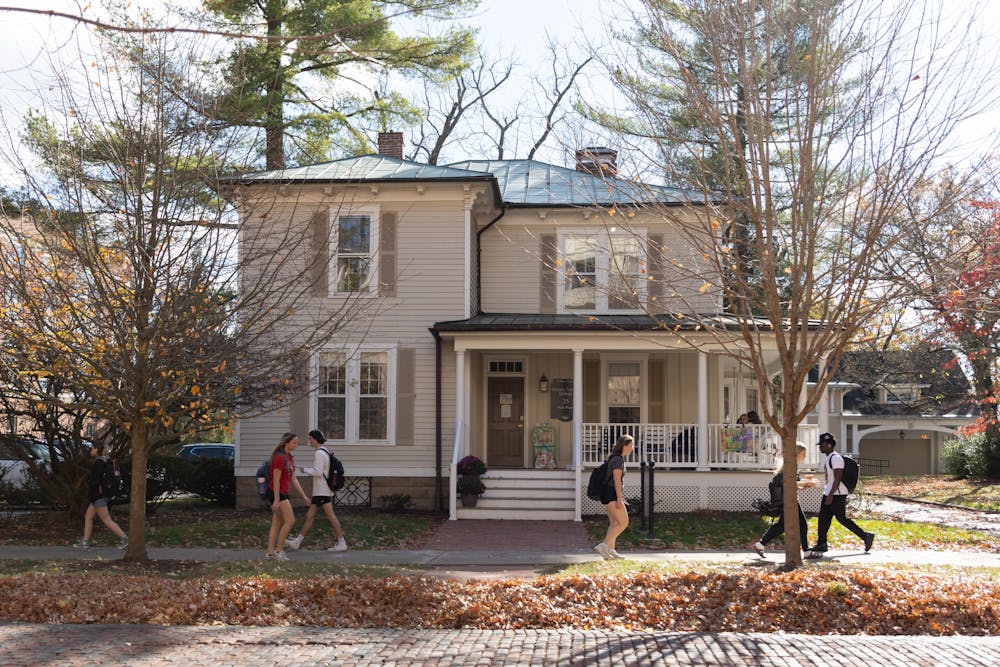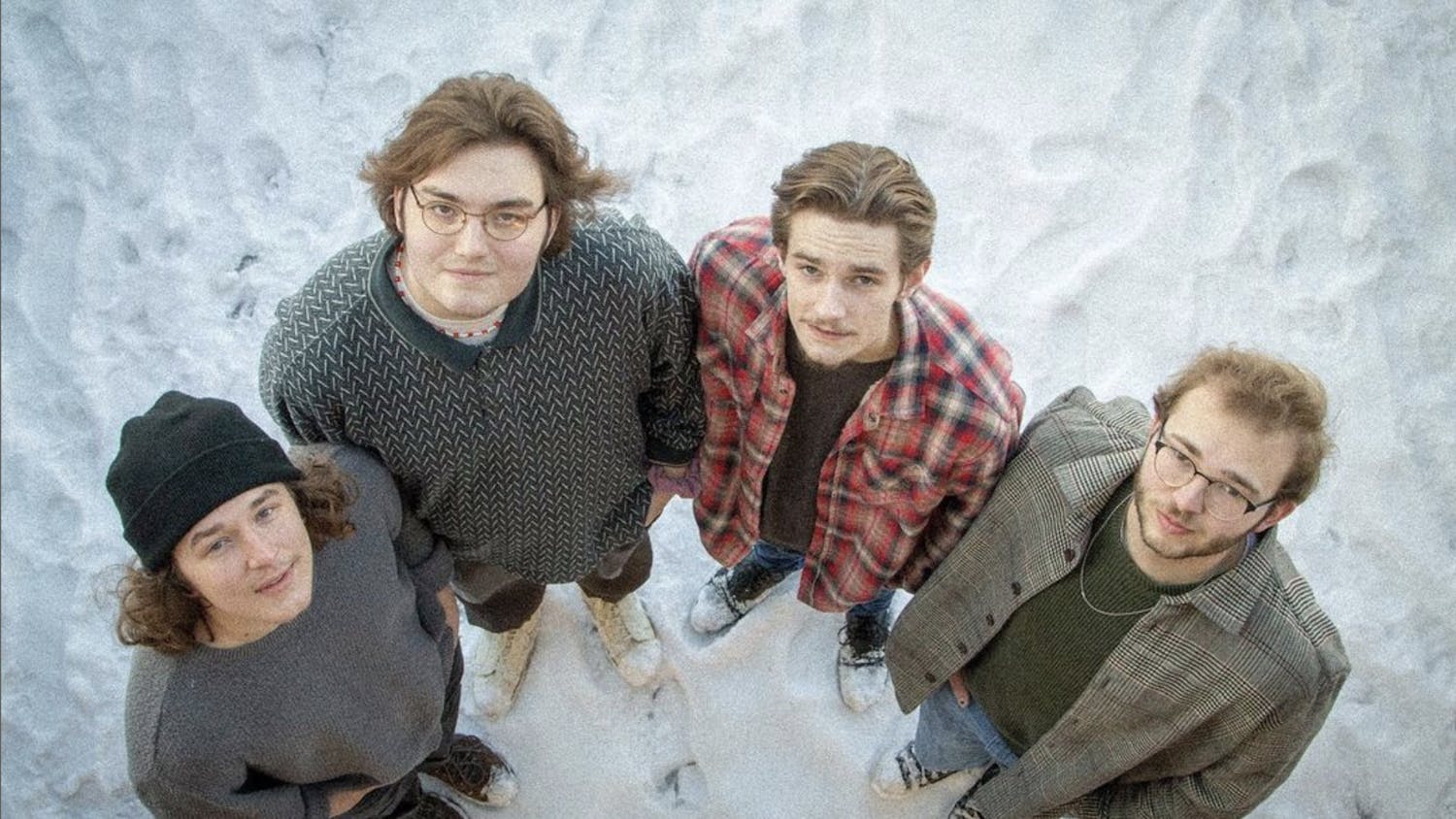The season of research, writing and reading is approaching as students in Ohio University’s Honors Tutorial College begin their thesis projects. With seniors conducting interviews, juniors brainstorming ideas and sophomores discovering their interests, the daunting yet rewarding process of research is underway.
HTC offers 35 programs of study and upon acceptance, students are encouraged to “dive in” and “discover new interests through tailored, rigorous individual study” even if their field of choice “falls outside of Ohio’s extensive course offerings,” according to its website.
Meghan Kuczinski, a sophomore studying journalism, chose OU after hearing about HTC from a close friend and said she is grateful she applied.
“I would argue (HTC) gives me a leg up because it is offering me all of these hands-on opportunities and lets me surpass all of the gen-ed requirements,” Kuczinski said. “I get to essentially explore my interests further and without those prerequisites, I can jump right into what I want to minor in.”
During their senior year, HTC students are required to complete a 50 to 80-page thesis on a topic of choice within their field. Some thesis projects can be traditional and include academic research, while others are more creative, especially if a student is involved in an arts program of study.
Dedicating hours to writing, exploring topics and interviewing professionals or other Bobcats is necessary to complete this rewarding, yet extensive project. However, HTC students are known for picking fascinating topics that make the research process fun and engaging.
Hiley Kresse, a senior majoring in communication studies, is brainstorming her thesis and is excited to start writing. Kresse said she first discovered an interest in her thesis topic sophomore year.
“I am doing my thesis on the way Generation Z perceives motherhood,” Kresse said. “It is very narrative based … I have a minor in community and public health and a certificate in women’s gender and sexuality studies, (and) motherhood seemed like the combination of all of those things.”
Kresse said her thesis must get approved by OU’s Institutional Review Board in order to begin researching. The board reviews the students' interview, survey or medical research questions to ensure they protect the subjects confidentiality. However, not all HTC students have to go through this process and it is only necessary for those who are collecting data from human subjects.
Similarly to Kresse, Julianna Rittenberg, a senior studying political science, is passionate about her major and said she believes her topic is relevant and important to discuss in today’s society.
“I am looking at anti-LGBTQ+ disinformation during campaigns across the United States,” Rittenberg said. “I am doing two sets of case studies, one is a set of six campaigns of LGBTQ+ candidates for office and then one is a set of five instances of anti-LGBTQ+ disinformation.”
Rittenberg said she first discovered this topic during a tutorial about conspiracies and disinformation and was compelled to keep exploring the issue.
Although writing a thesis appears to be a daunting process, HTC students are lucky enough to have a strong support system amid tiresome and stressful days. From professors to thesis advisors and other Bobcats, those in the process of completing a thesis do not have to look far for assistance.
“There is definitely a sense of camaraderie … we are all going through this thing together,” Kresse said. “It has been nice to talk to other people about their projects and if I am ever confused about something I know I have people I can talk to for support.”
Despite only being a sophomore and not yet starting the thesis process, Kuczinski already feels prepared and knows everyone in HTC has her back.
“The professors and people I have worked with, whether it be classmates or teachers or truly anybody in the industry have been incredibly willing to support me and help me grow as a reporter,” Kuczinski said.
In addition to having proper guidance, HTC students are required to take a tutorial class every semester, which can range from one to three credit hours depending on the student’s major and schedule. Tutorial classes encourage students to “take the lead” in their education and work one-on-one with faculty to explore their interests.
Despite tutorials being mandatory, HTC students can still have flexible schedules that encourage them to travel around the world.
“I’ve been able to do a lot of internships and I was able to go to DC for a semester because I could do my tutorial online and then my professor helped me sign up to get internship credit for my other hours,” Rittenberg said.
Tutorials are also utilized for thesis brainstorming and allow students to bounce ideas off of their professors. Maddy Morris, a junior studying social work, said their tutorial classes are different in comparison to other HTC students.
“Our tutorials are assigned to us, so it is me and one other person in my cohort, we have the same tutorial and talk to the same professor,” Morris said.
Morris said they will choose a tutorial professor next semester, and by doing this, they plan to get a head start on the thesis in order to obtain first-hand experience and helpful feedback before starting research.
“I’ve been having to brainstorm my thesis topic just so I am able to reach out to the appropriate people,” Morris said.
Whether an HTC Bobcat has started working on their thesis or not, it is evident that both creativity and expression is not just encouraged, but implemented. Kresse said in addition to offering thesis guidance, HTC offers a positive and welcoming environment that helps students accomplish their goals.
“I think how individualistic the program is has helped me explore a lot of different options,” Kresse said. “I am planning to go to grad school so having the experience from HTC of doing a lot of research and one-on-one projects with professors makes the idea of grad school a lot less intimidating.”






